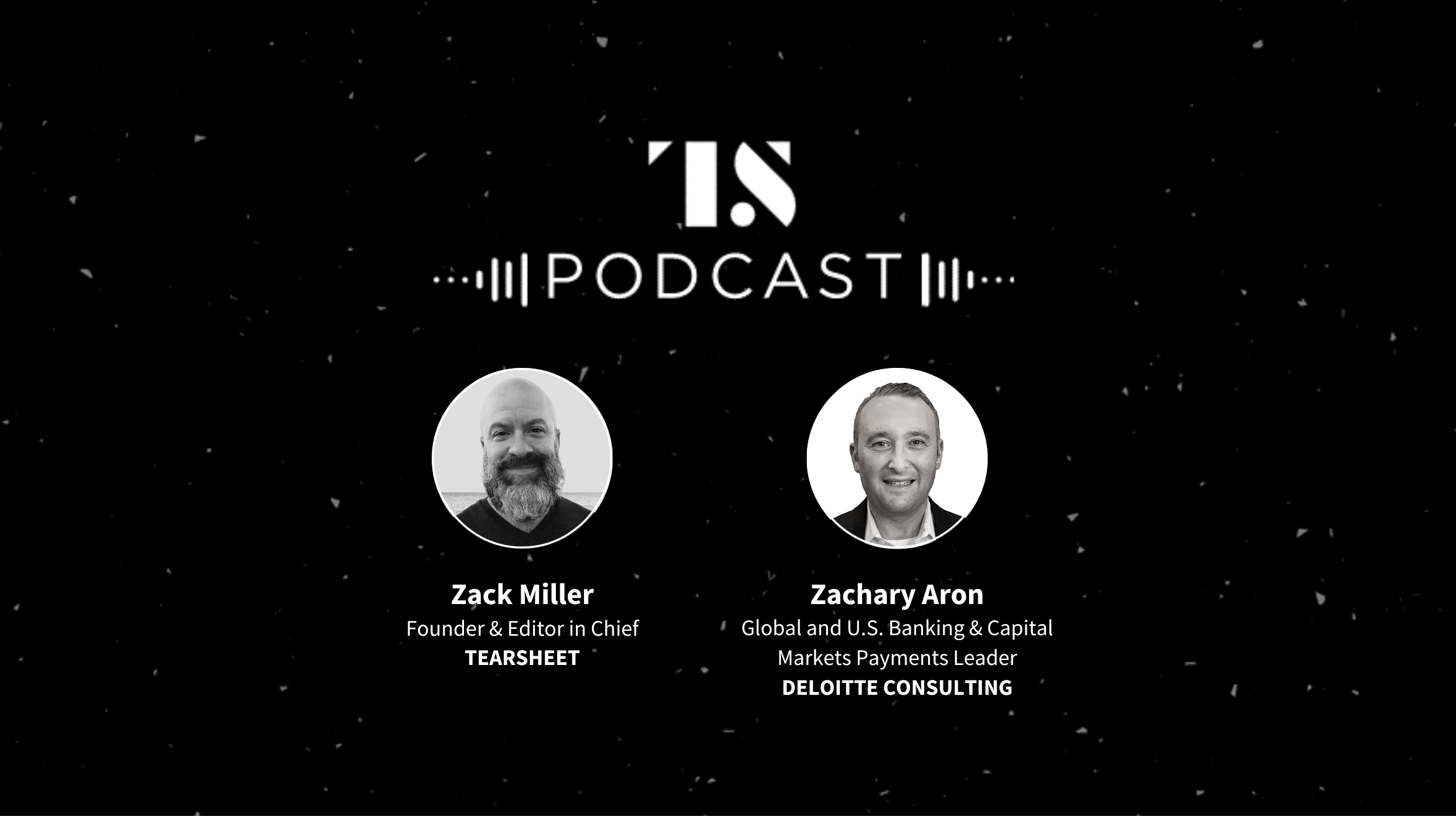Podcasts
‘Are we at the digital tipping point for payments yet?’: Deloitte’s Zachary Aron
- Between a global pandemic, threat of a recession, and the move to RTP, the payments industry has faced a lot of change.
- Zach Aron, who runs the payments practice globally for Deloitte, joins us on the Tearsheet Podcast to discuss a broad range of payments topics.








